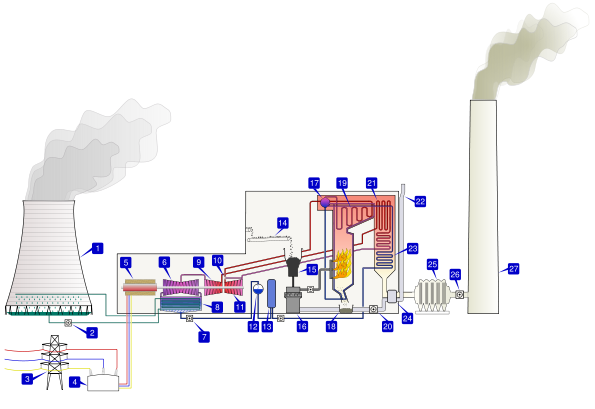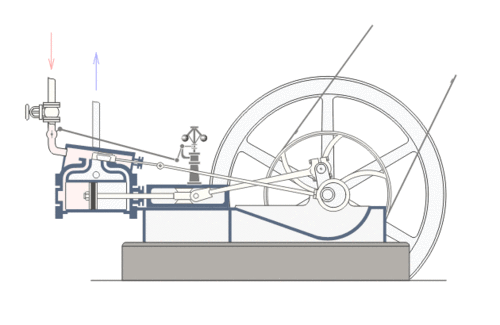Introduction to Coal | Coal as a Fuel|Coal Affects History| Coal Mining and Effects| Environmental Effects| History Affects Coal|References|
Early Uses
Archaeologists speculate that coal was first used as fuel as early as 120,000 years ago when it was used for campfire cooking in Germany. Other early uses of coal for fuel have been evidenced in China as early as 10,000 B.C. and in Britannia prior to the Roman invasion where it was used as a source of heat, the Aztecs also used coal for that purpose. Early uses of coal were simplistic, since coal is a ready-combustible material lighting a fire was enough to unlock coal’s potential as a source of heat and a cooking implement.
Industrial Revolution

Coal was the primary fuel used to power the steam engines of the Industrial Revolution (such as the Watt Steam Engine pictured above). The steam engine implemented a thermodynamic process where coal (usually bituminous or sub-bituminous) is used to heat water in a boiler (or “steam generator”) which in turn produces steam. The steam places pressure on a turbine blade or piston. The motion of the blade or piston can then be used to move gears and wheels and thus, power machinery.
Present Day
In the contemporary industrial world, coal is still a popular source of fuel due to its abundance and low cost. Coal plants provide most of the electricity in the United States and many other countries. The basic principle of the steam engine is still used. The principle difference is that the turbines are used to power electrical generators rather than gears and wheels. Additionally, coal is now industrially pulverized before being burned. Most coal plants in the United States are in continuous use and require daily shipments of 10,000 tons of coal per day (or more) to continue to operate.
Other Contemporary Examples
- Gasification: Cheaper alternative to natural gas and oil. Cleaner then burning coal the conventional way.
- Liquefaction (Coal-to-Liquids or CTL): Conversion of coal to liquid fuels similar to gasoline. Environmentally unsound but a potential means of stabilizing oil prices in the future.
- Clean Coal Technology: See History Affects Coal

